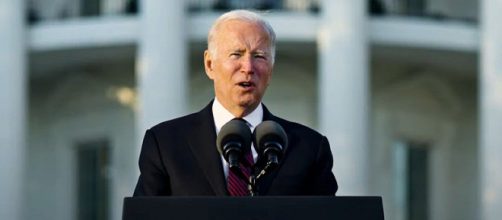U.S. President Joe Biden said a diplomatic boycott of the Beijing 2022 Olympics was "something we’re considering." He made the remark during an appearance with Canadian Prime Minister Justin Trudeau in the White House Oval Office on November 18.
Trudeau did not volunteer a response to the question. CNN said that it had been told by a White House source on November 17 that Biden would not go to the games, scheduled for February 4-20, 2022.
The Hill noted that a diplomatic boycott of the Winter Olympics would prevent U.S. officials from attending the games but would not stop athletes from participating.
According to CNN, the International Olympic Committee had said that the Beijing Olympics would be open to Chinese tourists, but not to tourists from outside China.
Pelosi wants the boycott
The Hill recalled that Speaker Nancy Pelosi, a leader of the Democratic Party, had expressed support for a diplomatic boycott in May. She was quoted by the news site as saying the U.S. could not act "as if nothing is wrong about the Olympics going to China."
Cotton calls for 'complete and total boycott'
U.S. Senator Tom Cotton, Republican from Arkansas, said at a press conference that the U.S. "should launch a complete and total boycott of China's genocide Olympics." In his remarks, which have been posted on Twitter, Cotton said, "I regret that this would prevent about 300 of America's world-class athletes from competing in the Olympics." He said the Biden should have tried to have the Olympics moved to a site outside China.
The United States must implement a complete and total boycott of the Beijing Winter Olympics.
The threat to our athletes and China’s crimes against humanity leave us no other option. pic.twitter.com/lSLvKhJPMd
— Tom Cotton (@SenTomCotton) November 18, 2021The New York Times recalled that it had published an op-ed piece about the Beijing Olympics by U.S. Senator Mitt Romeny, an organizer of the 2002 Olympic Games in Salt Lake City. He had written in favor of a diplomatic and economic boycott which would not hinder athletic participation, the paper said.
In 1980, President Jimmy Carter had succeeded in stopping American athletes from going to the Olympic Games hosted by the Soviet Union. The New York Times quoted Frédéric Mégret, of Canada's McGill University, as saying Carter's boycott had done more to harm American athletes than to hurt the Soviet Union.
Disappointment in South Korea
Writing in The Korea Times, Kwon Mee-yoo said the prospect of a diplomatic boycott seemed to eliminate any chance of South Korean President Moon Jae-in bringing a lasting peace to the Korean peninsula. Moon had hoped the presence of heads of states and diplomats at the Olympics Games would enable informal negotiations to take place, possibly leading to a peace agreement, Kwon said.
A diplomatic boycott would destroy Moon's hopes of getting such an agreement before the election of his successor next year, Kwon said.
'An active conversation' about the Beijing Olympics
The New York Times said that the governments of Canada and European countries had been pressured to boycott the games.
U.S. Secretary of State Antony Blinken was quoted by the paper as saying America and its allies had been discussing how to deal with the situation. "It’s an active conversation," Blinken told the paper.


